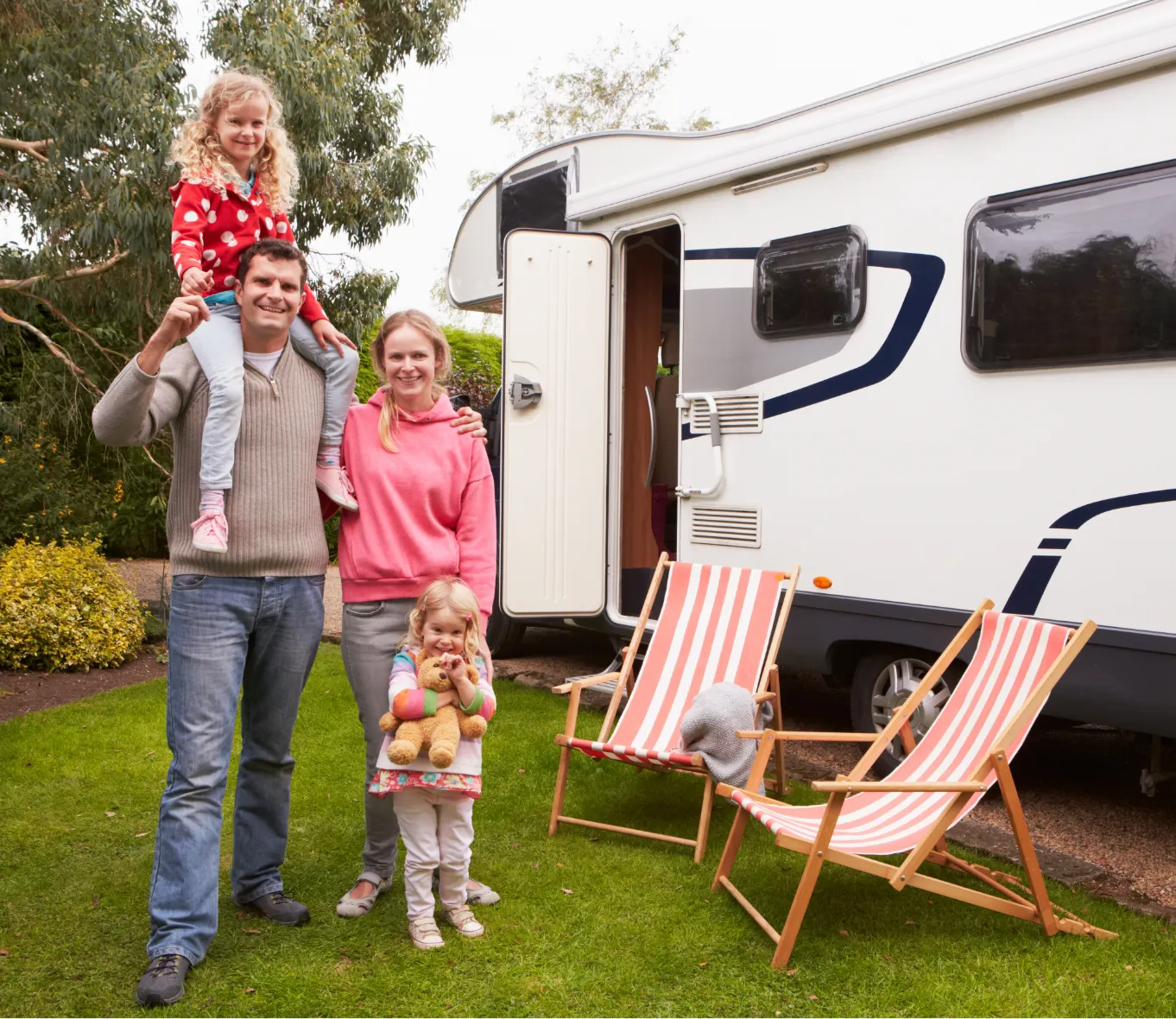MOTORHOME INSURANCE
WHAT IS MOTORHOME INSURANCE?
If you're a passionate explorer, there's no better way to travel the world than from the comforts of a motorhome. From exploring the European coast to taking a dip in the UK lakes, motorhomes offer plenty of holiday inspiration to those looking to satisfy their wanderlust.
Smart motorhome owners ensure that their vehicle is covered in case of unexpected events. If you have a motorhome and use it to roam the country, you need specialist motorhome insurance that includes both the vehicle and it's contents, ensures that you have suitable cover for your next trip.
...or we'll call you back.
Motorhome insurance can come with many different benefits to help you enjoy your holiday trip to the fullest, some of the benefits include:
-
From 90 days EU cover. A 365 day option available for an additional premium
-
New for old replacement available if vehicle is less than one year old
-
Up to £1,000 audio cover
-
Windscreen cover included
-
Personal effects cover – up to £5,000
-
Up to £2,500 cover for awnings, gas bottles, generators & camping equipment
-
Agreed valuation available if vehicle is aged 15+ years
-
Optional Breakdown Cover Available from £49.95
DIFFERENCES BETWEEN MOTORHOMES AND CAMPERVANS
Motorhomes and campervans are often confused with one another while, in reality, they are two completely different types of vehicles.
A campervan is usually smaller than a motorhome. Another critical difference is that in campervans, the driving and living space are combined together - not separate as in the case of motorhomes. One of the most common campervan types is the Volkswagen Camper, but this type of vehicle comes in various shapes and sizes. Some campervans even have a pop-up or high-top roof.
Motorhomes, on the other hand, are larger and designed for cruising around the country for more extended periods than campervans. The driving cab is usually separated from the living space, providing comfort to travellers. Most motorhomes also include far more advanced appliances than campervans (for example, full-sized ovens, fridges, and bathrooms). Motorhomes fall into 4 categories: coach-built, A-class, American ‘RV’ style, and race trucks.
Do I need insurance for my motorhome?
Yes, if you would like to travel with your motorhome, you need to insure it just as you would every other vehicle. To enjoy exploring the world with your motorhome, get the appropriate insurance and you'll be able to enjoy your next road trip with the knowledge that you are protected should the worst happen.
Does motorhome insurance cover trips to foreign countries?
Yes, it does. You can easily travel abroad your motorhome without a second thought. A standard rate amounts to 90 days of cover in the European Union, but can often be extended to 180 days. If you would like to travel abroad for a more extended period, choose the 365-day cover option for an additional premium.
What types of other insurance are helpful for travellers?
Every passionate traveller should ensure they have travel insurance that provides the right medical cover., especially if you suffer from particular medical conditions. Don’t forget that healthcare costs can be very high in some foreign countries. If you get ill while abroad, you might be presented with a high medical bill at the end of your trip. Don’t risk that and ensure you get travel insurance in place.
Motorhomes are like holiday homes. When you’re travelling in your motorhome, you’ll be leaving your main home empty - and that’s where home insurance comes in handy. It will protect your home against theft or accidental damage.
How can I change the vehicle I have insured?
If you have sold or are planning to sell your vehicle, it’s possible to perform a ‘Change of Vehicle’ amendment to your policy. Note that many of the policies are specialist policies that may cover only that specific type of vehicle.
If your new vehicle is different, we may offer you the option to cancel your current policy and replace it with one that matches your needs. To request a change of vehicle amendment, please get in touch with our customer services department.
Alternatively, you can telephone us on 01480 484826 to discuss your specific Motorhome insurance requirements.

AVAILABLE BENEFITS AT A GLANCE:
- Motorhome Club member discounts
- EU cover up to 90 days
- Up to 365 days EU cover Available
- Gas Bottle & Awning Cover
- Windscreen Cover
- Optional Breakdown Cover
- 24 Hour Claims Helpline
- UK Based Call Centre
- Personal Effects up to £6000
- Limited Mileage Discounts Available
Policy benefits, features and discounts offered on this page may vary between insurance schemes or cover selected and are subject to underwriting criteria. Some policy benefits may be at an additional charge.
LANCASTER CLASSIC CAR NEWS
‘Simple is Efficient’ - The Ford Escort Ghia Mk. III
The year is 1980, and this writer is making his first visit to the NEC Motor Show. Three cars seem to dominate this year’s display – the Rolls-Royce Silver Spirt, the Austin Mini Metro and the Ford Escort Mk. III.
THE RELIANT REGAL 21E – METALLIC PAINT AS STANDARD
The year is 1967, you hold a motorcycle licence, and you want three-wheeled transport for a family of four – one with the comforts of a car and the running costs of a motorbike.
THE PERFECT SUMMER FORD – THE FIESTA FLY
In the summer of 1981, there were various ways to prove your essential hipness to the neighbours. A Sony C7 video in the living room was one sign, as was a Soda Stream in the kitchen – and a Ford Fiesta Fly on the driveway.
Most insured 90s and Noughties cars that are now considered classics
With the season in full swing, classic car insurance specialist, Lancaster Insurance, has shone a spotlight on a batch of cars from the late 90s and early 00s which are now defined as classics.
Kit Car drivers risk £2,500 fines by not following roadworthy rules
Kit cars offer enthusiasts the unique opportunity to build their very own vehicle tailored to their specifications. But understanding the intricacies of kit cars and securing appropriate insurance is crucial for everyone looking to take on a kit car of their own.
2025 Clubs Announced! 16 Brand New to the Lancaster Insurance Classic Motor Show!
Can you smell the polish and petrol already? The Lancaster Insurance Classic Motor Show is gearing up for another epic year – and the numbers are in. Over 310 motoring clubs are joining the fun from 7–9 November, including 16 making their show debut.


